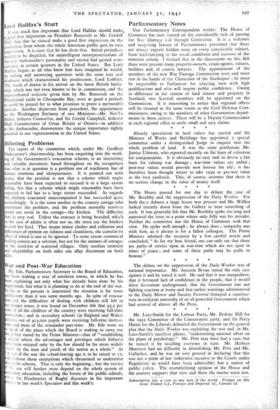ar and Post-War Education •
Mr. Ede, Parliamentary Secretary to the Board of Education, s been making a tour of northern towns, in which he has en explaining not only what has already been done by his epartment, but what it is planning to do at the end of the war. o far as the present is concerned the situation is far more tisfactory than it was some months ago. In spite of evacua- n i.nd the difficulties of dealing with children still left in danger zones, it was found on December 6th that 93.2 per ent, of all the children of the country were receiving full-time struction ; and in secondary schools (in England and Wales) 02,000 out of 413,000 pupils were receiving full-time instruc- on, and most of the remainder part-time. Mr. Ede went on speak of the plans which the Board is making to carry out e policy stated by the Prime Minister—that of "establishing society where the advantages and privileges which hitherto ace been enjoyed only by the few should be far more widely bared by the men and youth of the nation as a whole." At -e end of the war the school-leaving age is to be raised to 15, -id without those exemptions which threatened to undermine e Whole scheme. That is only the beginning ; but the raising I the age still further must depend on the whole system ot ondary education, including the future of the public schools, the Headmaster of Rugby' discusses in his important des in last week's Spectator and this week's.






























 Previous page
Previous page